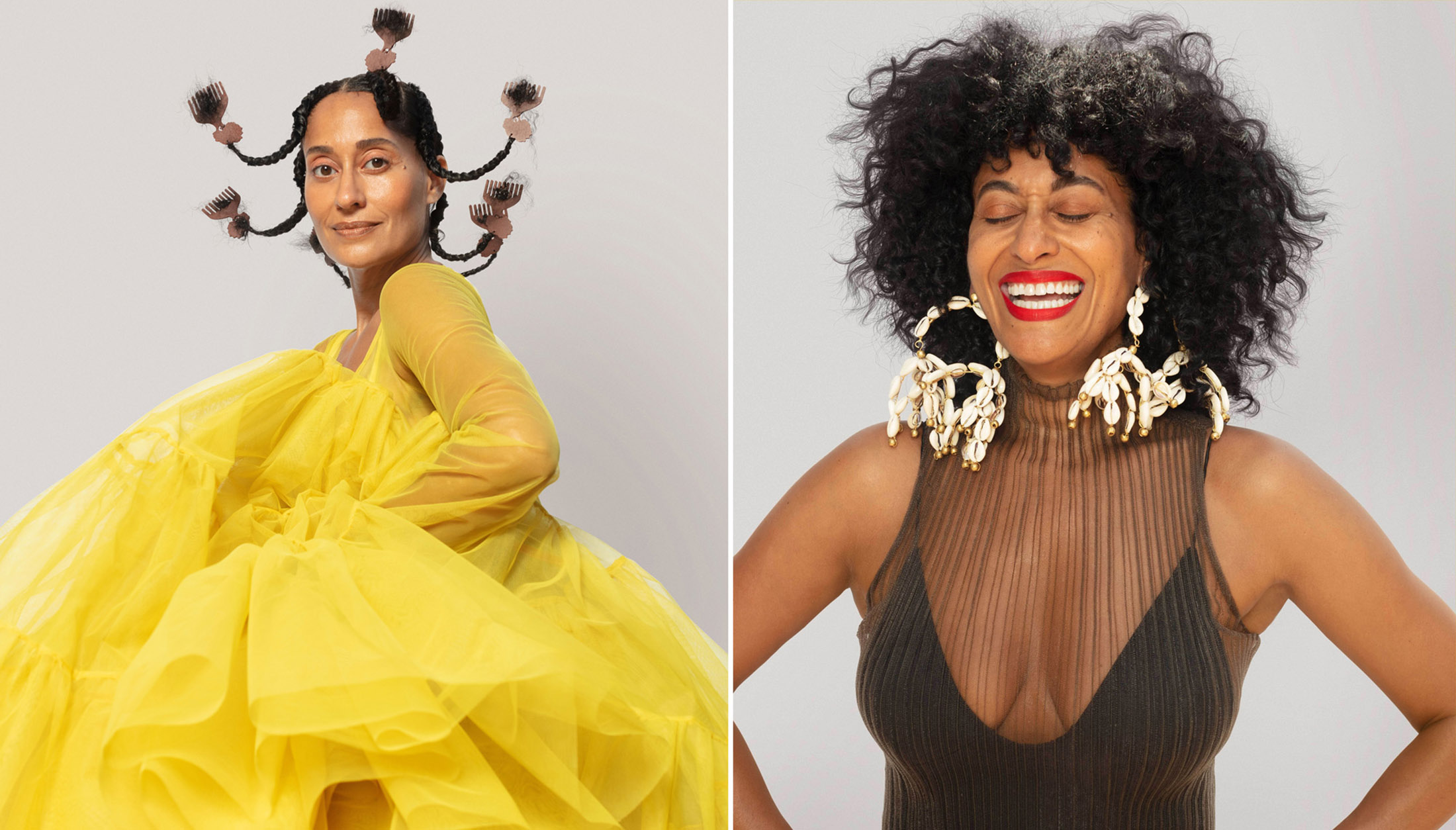What is the bachelor trope for women? And no, it can’t be the bachelorette because that seems to be a derivative of the bachelor — like how in the reality television series, The Bachelor, the runner-up (AKA the loser) gets to have her own spin-off show to hopefully find love again. In TV land, it’s normal — even celebrated — that characters like Barney Stinson, Charlie Harper and Don Draper get to be professionally single men. They’re desirable, successful and interesting; all while never prioritising love and romance. In fact, these characters often exist in opposition to ideas like monogamy and true love and are celebrated for it. When we gender-bend this concept, it doesn’t often pan out. When we see permanently single women or spinsters on television, it’s often as a cautionary tale for all the women watching. When women in television are constantly single, oppose monogamy or only want sexual partnerships — the reasons are either because they’re too intolerable to be around, they fear intimacy and vulnerability or they just haven’t met the right guy yet. In men, being a bachelor is a virtue. For women, it’s a defect.
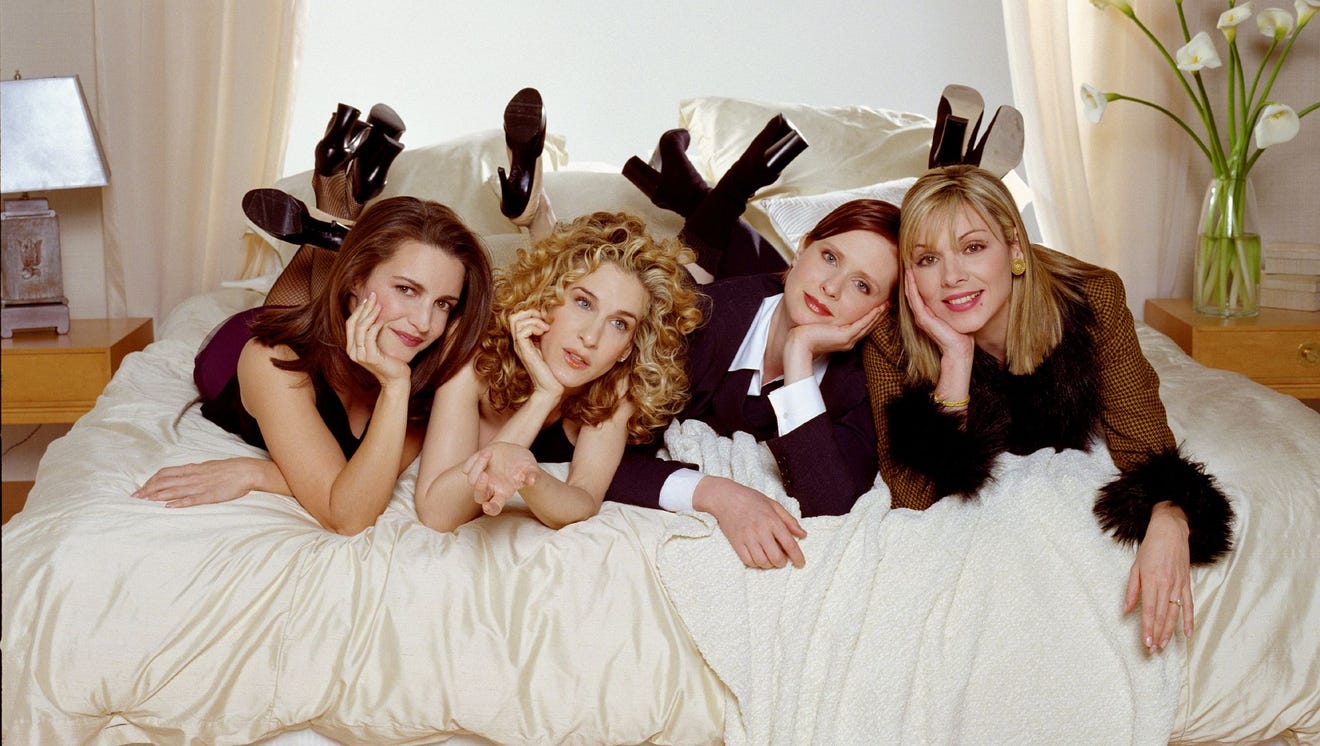
Sex and the City, main cast
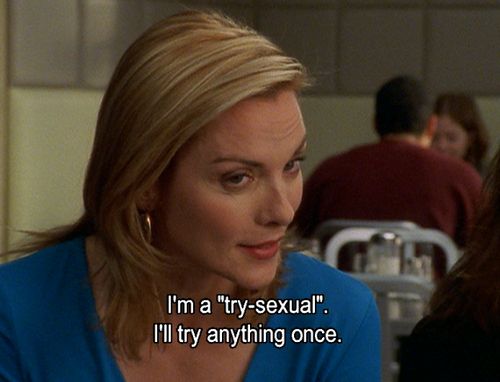
Kim Cattrall as Samantha Jones
Then enters Sex and the City’s Samantha Jones; the saving grace for single girls everywhere. Samantha Jones ran her own public relations firm, she owned her New York penthouse and she never had never planned to get married or have children. Instead, she was sexually adventurous and fiercely independent. Opting out of monogamy for Samantha was not because of a deep-seated or inherent character flaw. Throughout the show’s six seasons and two films, she has three serious, monogamous relationships. We also see her relationship with intimacy evolve as she does, and as she works through self-identified issues. However, Samatha ultimately still ends up choosing the single life. When she breaks up with the ideal partner, Smith Jerrod, in the first SATC film, covered in sushi, she says, “I have been in a relationship with myself for 49 years and that is the one I need to work on”. Samantha has always been a great avatar for millennial and Gen Z audiences seeking to create their own path in the world, one that isn’t so dependent on the illusion of “the perfect man” or fairytale endings. “Marriage doesn’t guarantee a happy ending — just an ending.” Samantha says at one of the girls’ famous brunches. Our society is moving further and further away from the problematic idea that the institution of marriage and domesticity is all women can hope for and look towards, and Samantha is one example of what this could like. She explores her sexuality, she works at her career, she fosters her friendships — and all of this always on her own terms.
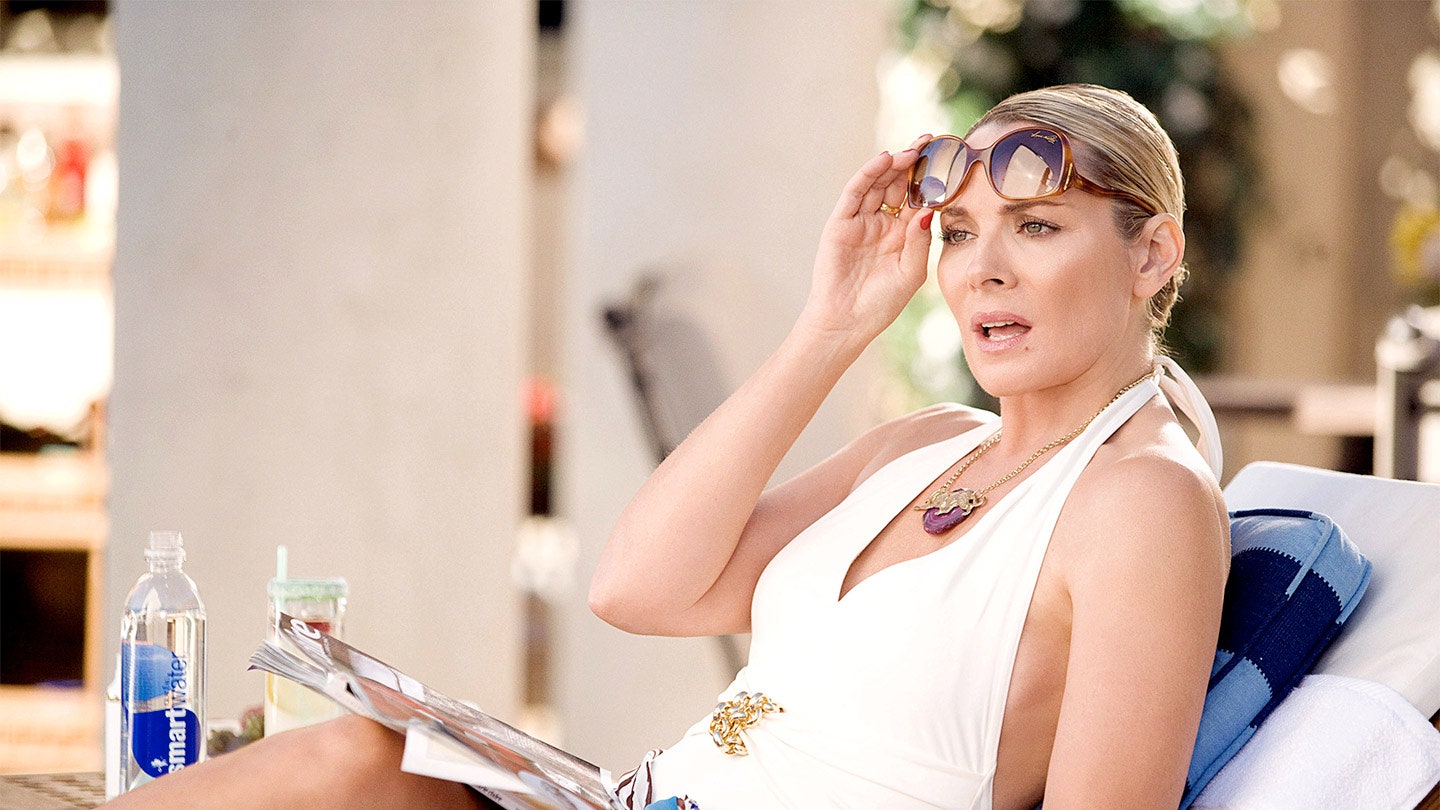
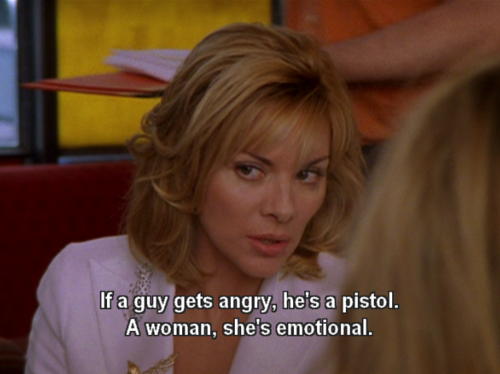
The only problem? She’s white. Well, it’s not a problem that she’s white but as a Black woman, a lot of the freedom and mobility granted to Samantha are inherent to the fact that she is a desirable, white woman. Samantha is an icon because she’s assertive and passionate; traits that are demonised in Black women especially (see: the jezebel and angry Black woman stereotypes) and non-Black women of colour. Even the show has ‘sex’ in the title and often plays Samantha’s sexual exploits for laughs. Carrie, Miranda and Charlotte make many quips at her expense that border on slut-shaming more than they do light teasing amongst friends. This comes to a confrontational head in the season five episode when Carrie walks in on Samantha giving a mailman a blow job and Carrie cannot hide her contempt. She eventually apologises but she’s adamant on making sure that Samantha knows that being sexually liberated in that way is not the norm. Samantha could not be shamed, however. The “I will not be judged by you or society. I will wear whatever and fuck whomever I want as long as I can breathe and kneel” is now iconic and mobilised me into enjoying and celebrating my own sexual desires and agency. But would I, as a Black girl, ever be awarded the same iconic status as Samantha just for wearing whatever and fucking whomever?
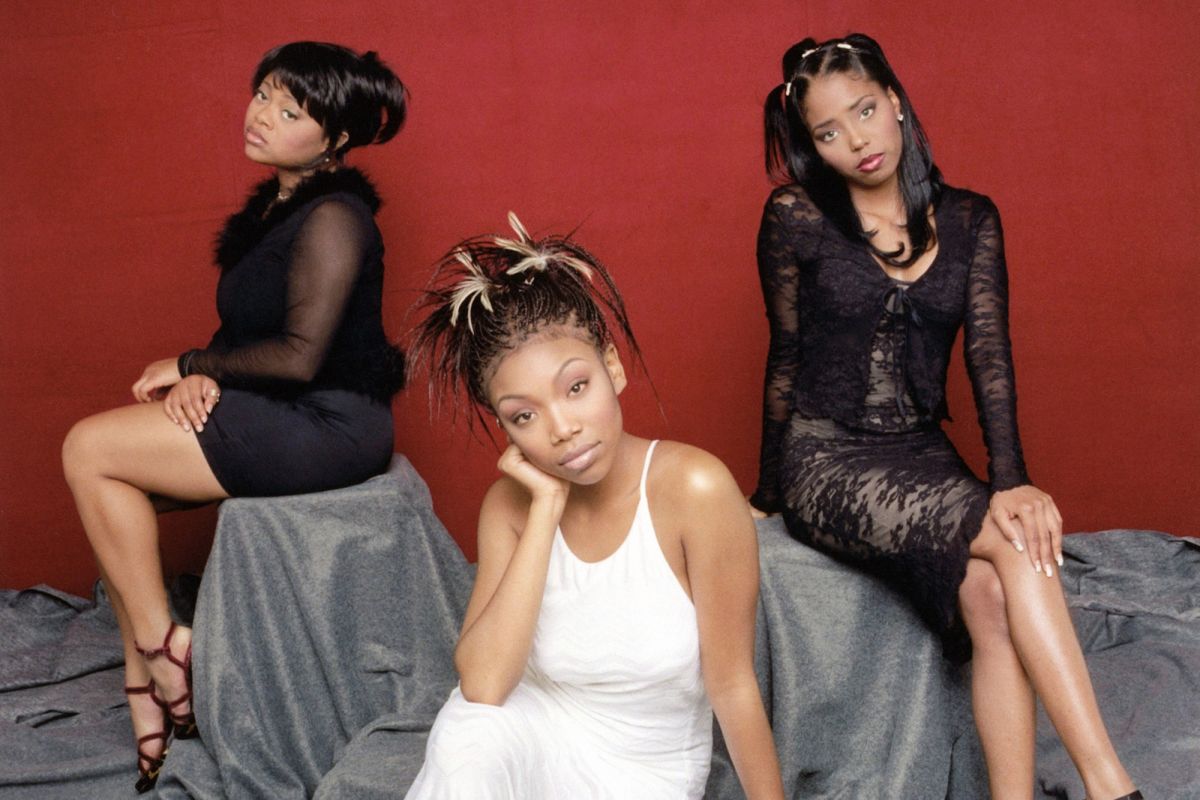
Moesha, main cast
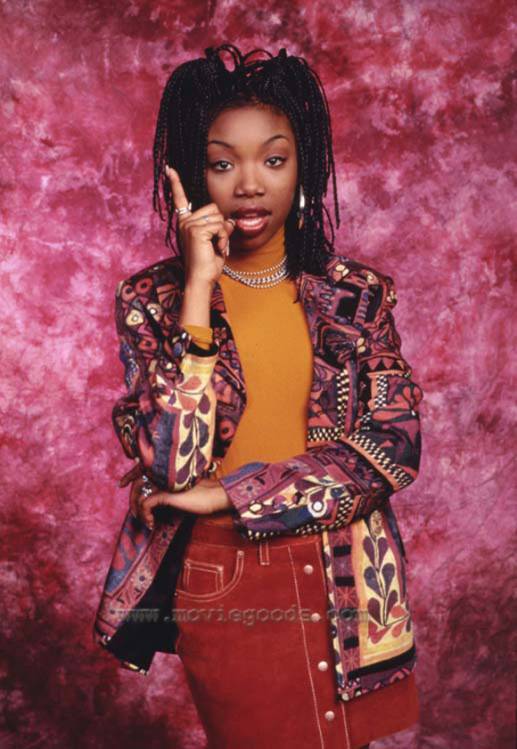
Brandy Norwood as Moesha Denise Mitchell
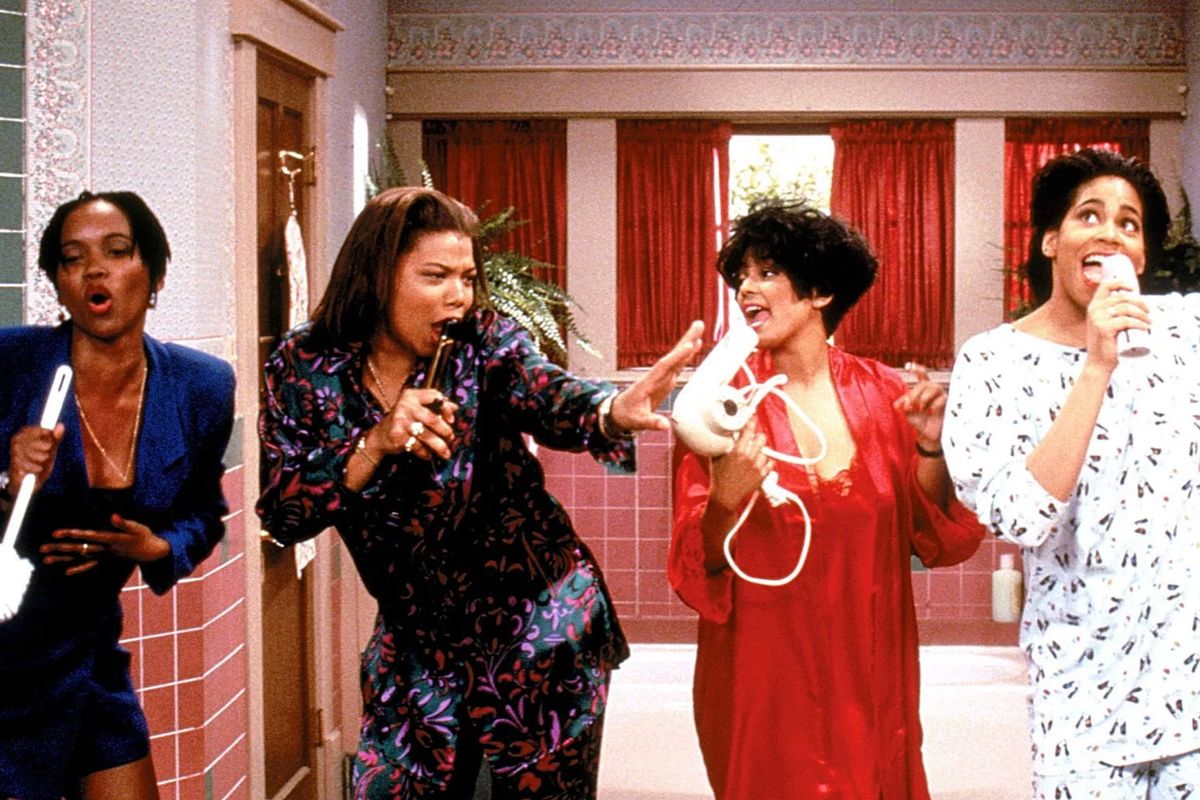
Living Single, main cast
This year, with the arrival of the 2000 sitcom Girlfriends on Netflix, many of us have been reevaluating the Black women avatars we grew up with. Girlfriends creator, Mara Brock Akil, spoke of how she saw a steady decline in the representation of Black women in prime time television before her show aired. Living Single had ended in 1998, Moesha a year later and the sitcom slots were occupied by very white shows like Friends, Frasier and Will & Grace. Girlfriends was a refreshing and almost unparalleled revival: a show about four Black women making their ways through their careers and relationships and just like in Sex and the City, their friendship and chosen sisterhood were always at the show’s core. After all, it was called Girlfriends. The girlfriends were diverse and unique archetypes that Black girls watching could project themselves onto: there was Joan, the successful lawyer and hopeless romantic, there was Lynn, the free-spirit who revelled in the unknown, there was Mya, the teen mom who lifted herself by her bootstraps and Toni, the bougie girl who made it out of hicksville and was determined to never go back.But for all these women, it seems romantic partnership was always in the cards. The show was unceremoniously cancelled in its eighth season so we will never know what the ideal ending would have been for each of the characters like we did with the SATC cinematic universe.
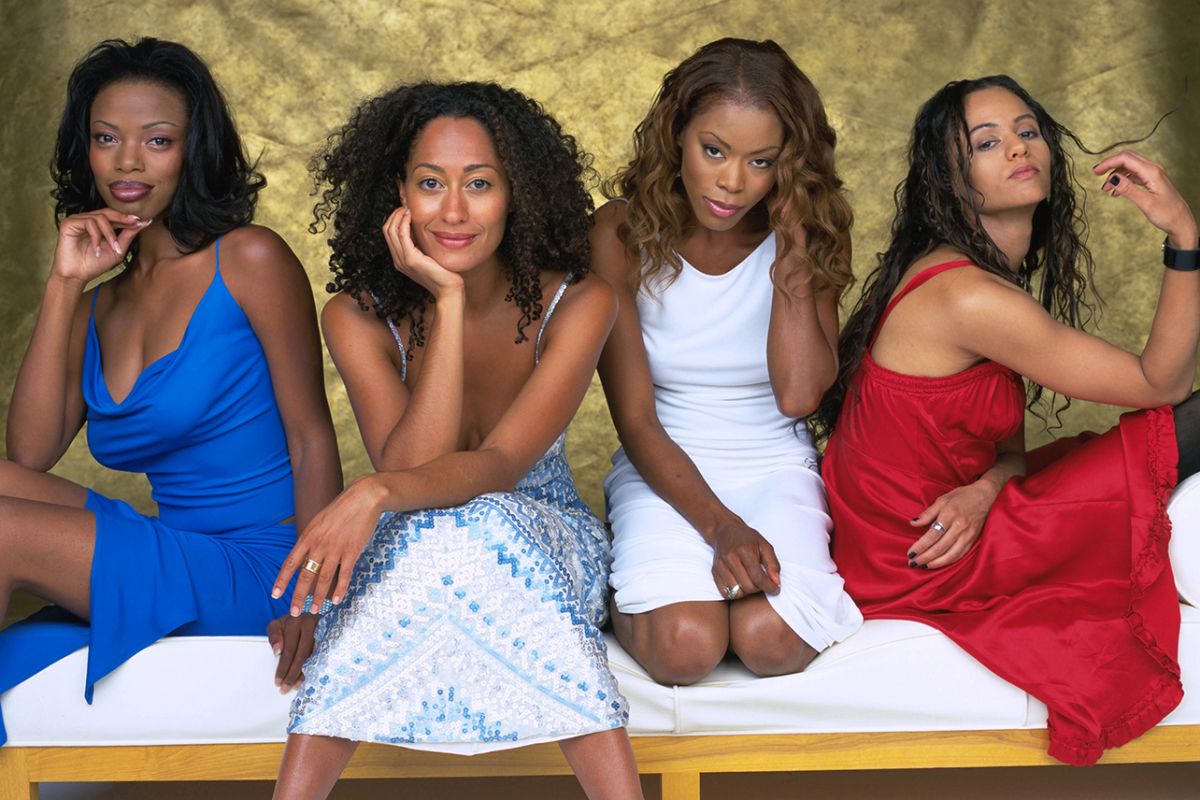
Girlfriends, main cast
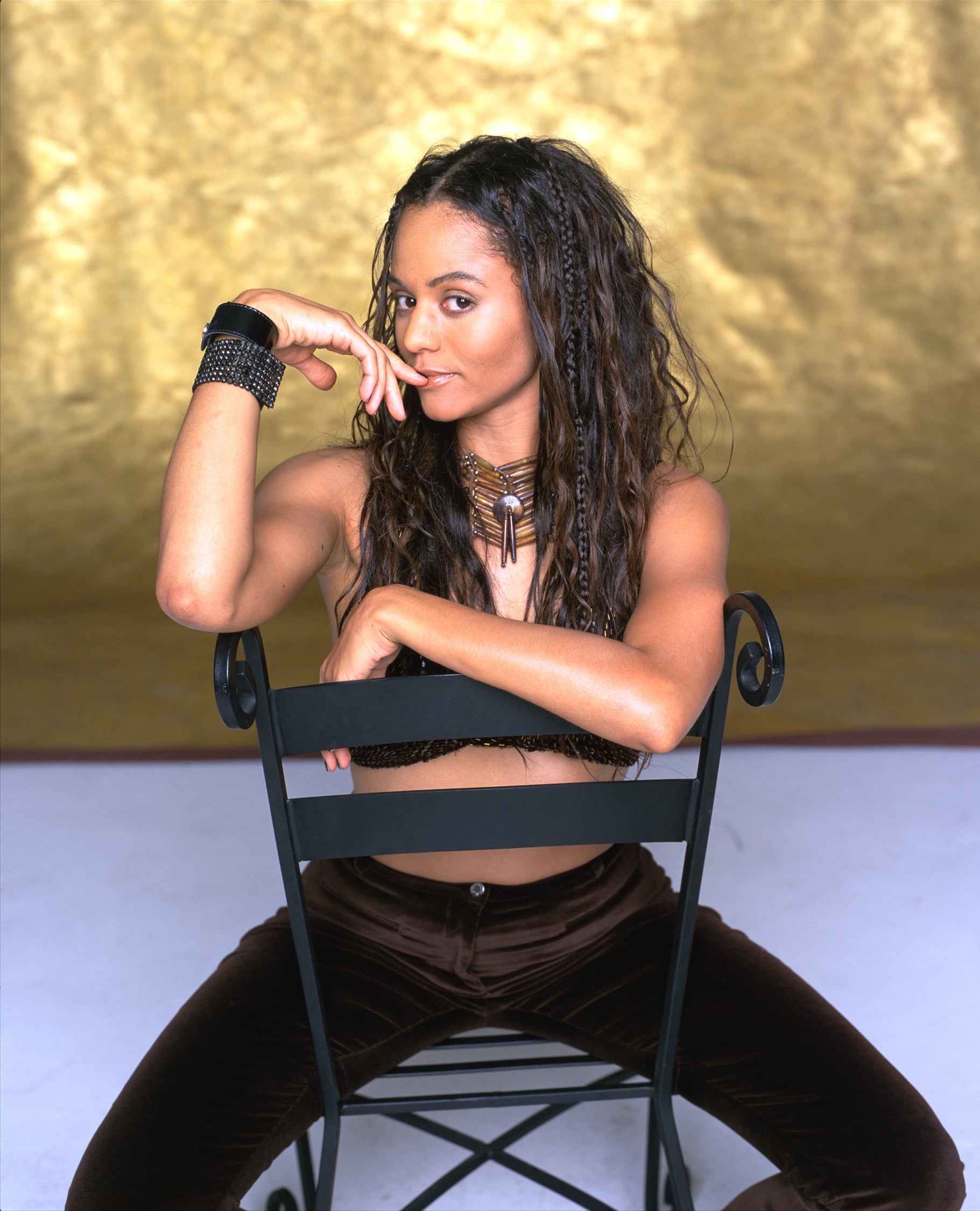
Persia White as Lynn Searcy
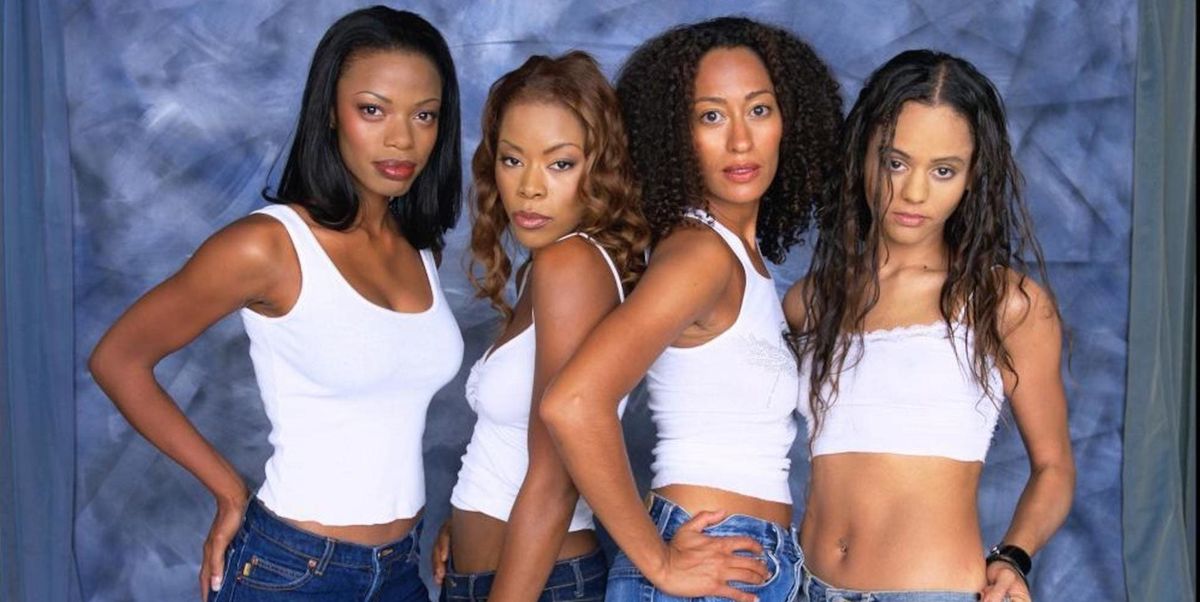
Perhaps Joan—the most pick-me and desperate-for-love characters—might have grown to stop prioritising men. Maybe she and Toni would have made up and chosen their friendship as their epic love story. Granted, Lynn was just as overtly sexual and free-spirited as Samantha. She was unabashed about one-night stands, she made up her own signature move, “the Lynn Spin” and had a “non-lableable identity”. Lynn could be smart, caring and compassionate and still choose to engage in sexual relationships over romantic ones. She spent eight years in graduate school, trying to figure herself out and always chose to carve out her own path. Lynn dated frequently, yet, she was rarely defined by her proximity to men. While she is still single by the show’s end, Lynn’s character is in a constant state for searching and one could get the impression that perhaps, some sort of romantic relationship will be part of her destiny, once she gets to the stage and figures herself out. Whereas with Samantha—no matter what she is figuring out about herself—being single will always be an integral part of who she is. Ironically enough, we can look towards Joan for the Black Samantha Jones. Not Joan, but the actress who played her, Tracee Ellis Ross.

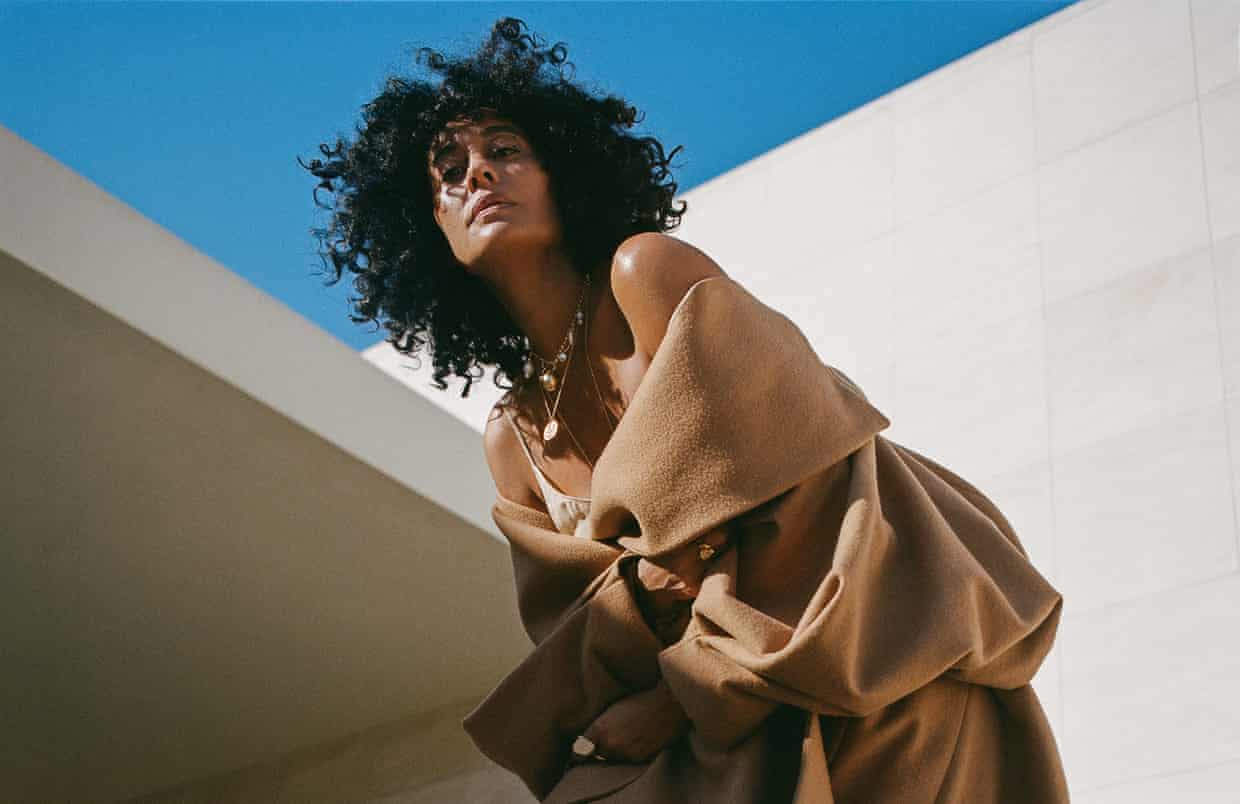
Ellis Ross has never been publicly tied to a man nor has she ever been married. She is instead, a successful, intelligent and desirable woman over the age of forty (Ellis Ross is 48) — which is imperative as the gendered societal deadline for “acceptable single-hood” goes from fun and liberating to tragic and concerning once women turn 35. When we do see Ellis Ross outside of Girlfriends and Black-ish—where she is either married or looking to marry—she’s meditating, making funny TikTok videos or spending time with other women and her families. In her October 2020 interview with Shape magazine, Ellis Ross shared notes on living single:
I am happily single, though that doesn’t mean I am not open to and don’t want a relationship. But in my wonderful and robust experience of being single, I have learned to have a productive relationship with loneliness and an intensely juicy relationship with my joyful solitude — I really enjoy my company.
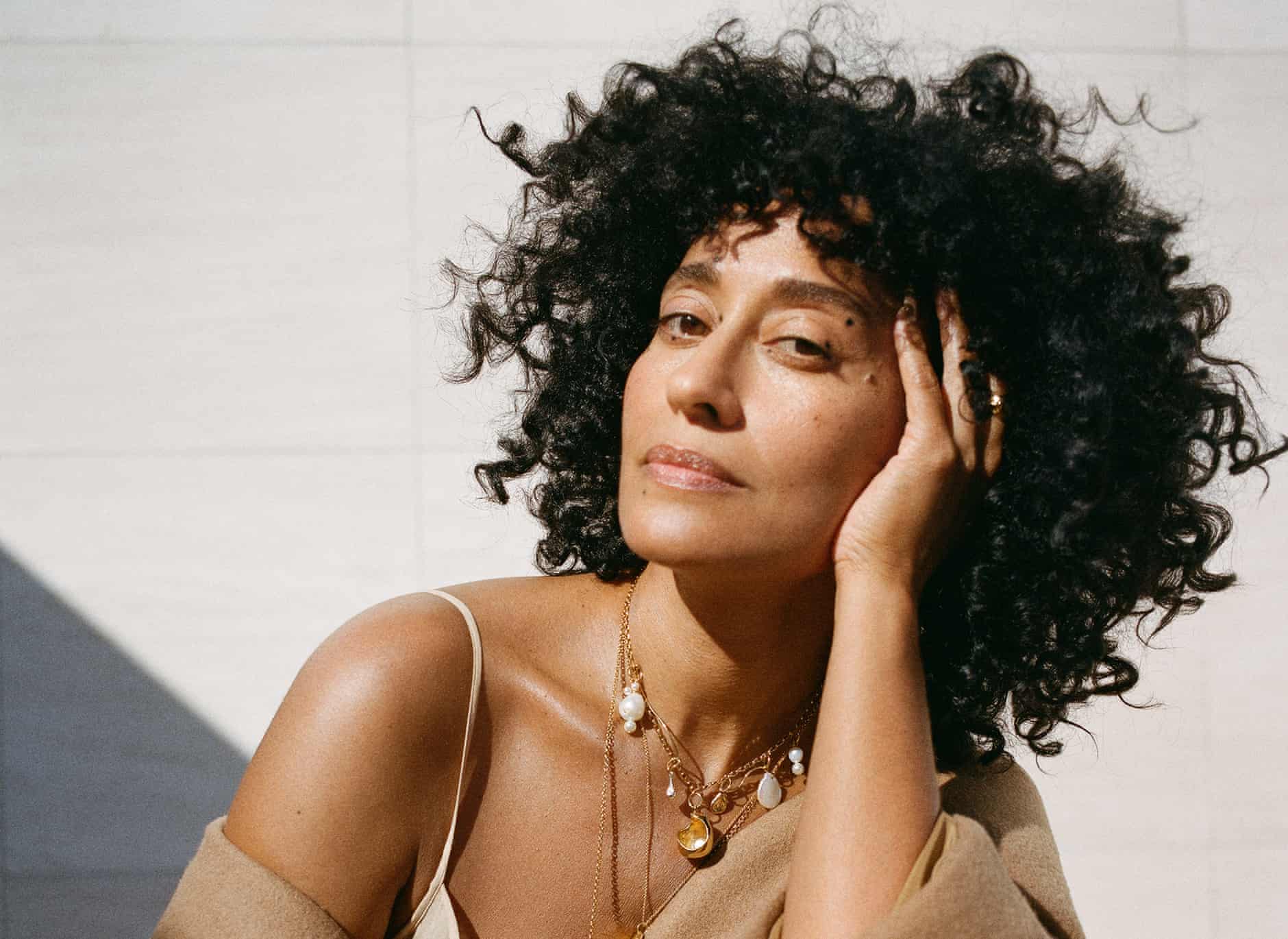
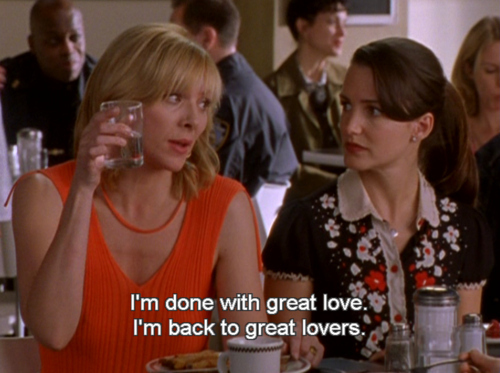
Ellis Ross’s entire brand is associated with her self-care: the healthy food she eats, her natural hair care line, mindfulness. Just like Samantha, the relationship she is always working on is the one with herself. She shares often how she’s overcome the “patriarchy of being chosen” that Joan suffered, the struggle to find herself and love herself — and now dedicates herself as space for other Black women to feel safe and free. We should never deify other people, even when they are fiction, but being able to notice a paradigm somewhere does play a role in either perpetuating or shifting it. Would we have had norm-challenging television like Girls and Insecure without Sex and the City and Girlfriends? Which isn’t to say that any of these shows are one for one parallels, however, they all exist in their own special cinematic universe where women are more than their romantic relationships but they’re also not any less worthy or progressive because they have romantic relationships either. Samantha Jones and Tracee Ellis Ross are important to this as they teach us that one of the most romantic relationships you can have, is the one with yourself.


